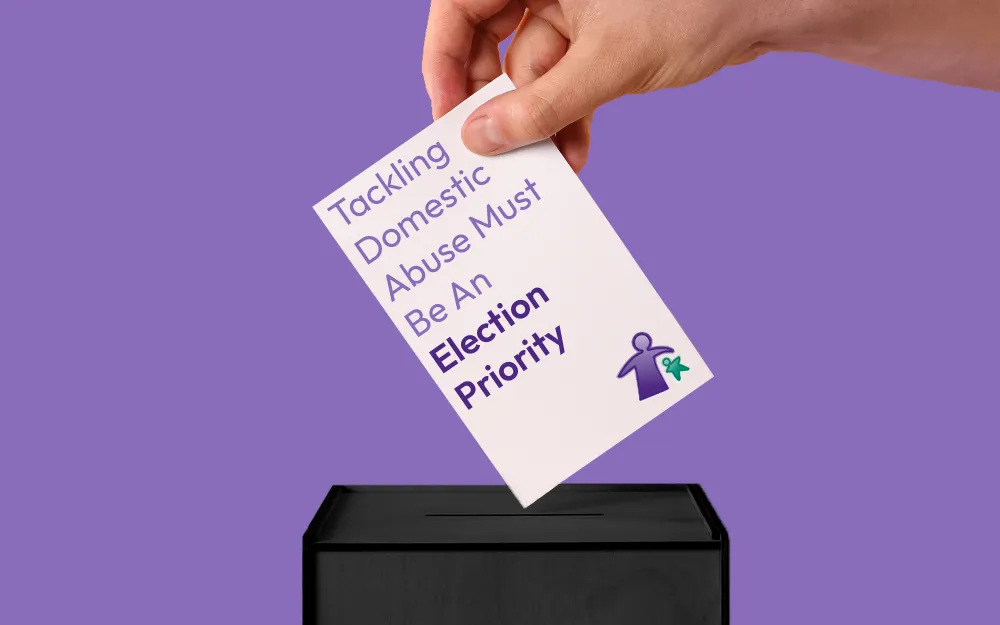
Overview:
The Prime Minister, Rishi Sunak, recently announced that a general election will be held on Thursday 4th July. Until then, all candidates that will be standing to be elected will be campaigning across the country to convince people to vote for them on election day, sharing policy that they hope to implement, should they be elected.
We hope that domestic abuse and violence against women and girls are important issues that all the major parties commit to tackling, particularly as we feel that these are issues that should be supported by all parties, regardless of political allegiances.
Tackling Domestic Abuse
In recent years, we have seen specific legislation introduced to support those experiencing domestic abuse, including recognising coercive control as a specific offence, the landmark Domestic Abuse Act, and the Online Safety Bill.
These have been positive introductions, but it is important that all parties continue to build on this platform, whilst also addressing the areas in which the legislation falls short and being dynamic to respond to new challenges.
For instance, we have regularly highlighted the lack of long-term, sustainable service provisions for those from migrant communities, which has placed barriers on those with no recourse to public funds to access support.
There is still patchy service provision across the county for community-based services, with some organisations scaling back operations due to a lack of funding and resources. These kinds of services are often in the form of drop-in sessions in accessible locations or support group sessions, giving survivors a chance to share their experiences with others.
We have also seen how the cost-of-living crisis has impacted survivors, creating additional barriers to accessing support.
These issues must be addressed, helping to remove the barriers that prevent survivors from accessing support.
We feel that tackling domestic abuse is in everyone’s interests, regardless of what their political allegiances are, and hope to see the major parties outline their plans to tackle some of the key issues that Leeway and other support organisations encounter on a daily basis.
Solutions
Any solutions to tackle domestic abuse and support survivors must be long-term, especially when it comes to the funding of vital services.
Research conducted by Women’s Aid indicates that investing money into domestic abuse services will save the economy a considerable amount of money in the long run. Their estimates show that for every £1 invested, it will bring around £9 worth of savings to the economy.
Whilst funding is needed for services across the board, specific areas which need greater investment include:
Funding will always be a critical issue, but we would also like to see commitments to increase public awareness of domestic abuse through information campaigns.
We believe that this will help to raise awareness of the various forms that domestic abuse takes, the importance of healthy relationships, as well as where and how people can access support, should they need it.
Our hope is that this would encourage people experiencing domestic abuse to come forward at an earlier point.
A lot of progress has been made to tackle domestic abuse, but it is important that we do not stand still. This is a great opportunity to build on this work and commit to providing the best possible long-term support for survivors.
Leeway provides regular Domestic Abuse Awareness training sessions for individuals, businesses, and organisations, to help them spot the signs of domestic abuse and confidently respond to it. We also provide bespoke sessions to meet the specific needs of an organisation. For more information, visit our Training page.